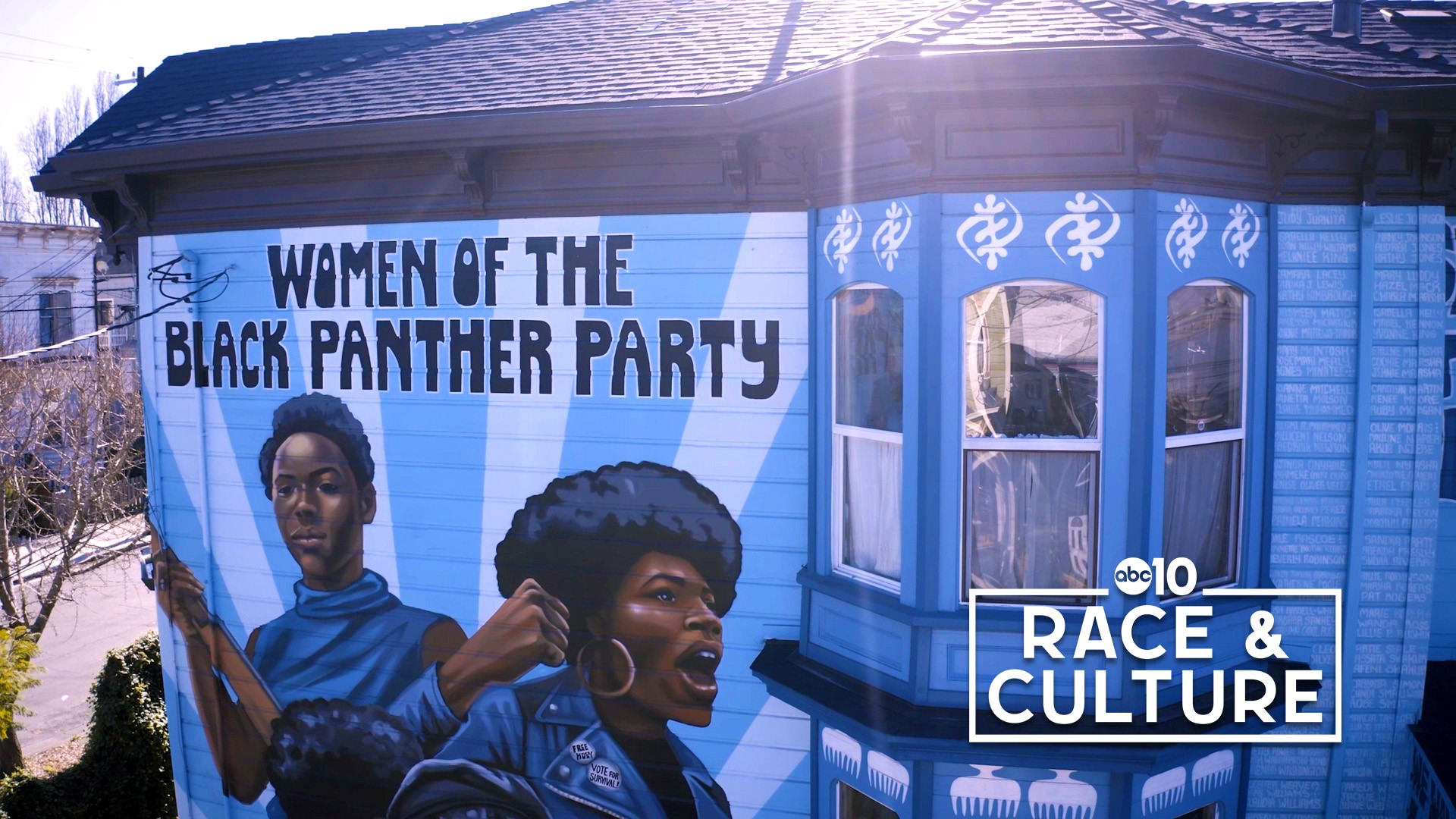OAKLAND, Calif. — In fall 1966, a group of young students from Oakland started the Black Panther Party for Self-Defense. The group mission was defending the rights of minorities wronged by the police, wronged by the government and wronged by society.
Today when you search for images of the Black Panther Party, you will often see pictures of Black men holding guns, Black men parading militantly in the streets and Black men with fists raised in anger. An image captures a moment in time and it’s up to the photographer to choose what moment is captured.
If you visit Jilchristina Vest’s home in Oakland, she will show you many moments in the Black Panther Party’s time you probably haven't seen.
“You can see pictures of Panthers doing research on sickle cell and taking [people's] blood pressure,” said Vest.
If you look even closer at the images in her home, you'll see something else — a majority of the Black Panthers were women.
“At the height of their membership 70% were women. Two-thirds were women across the country,” said Vest.
She's the founder of the West Oakland Mural Project, an organization and museum she runs from the first floor of her home.
“This is the only monument in the world that honors and acknowledges women of the Black Panther party,” said Vest.
It's true members of the Black Panther Party carried guns and stood up to abusive and racist police, but it’s also true the Panthers created many community-run assistance programs that still exist.
“Today, in Oakland and across the country, there’s food co-ops [and] health clinics. The Emeryville shuttles. Those are legacies of the Black Panthers,” said Vest.
The images of the Black Panther Party in the museum are ones most of us don’t see. Women running clinics, feeding the hungry and standing alongside their male counterparts fighting for civil rights, and many of these images wouldn’t exist if not for photographer Stephen Shames who spent years photographing the Black Panther Party.
The images inside Shames' new book Comrade Sisters: Women of the Black Panther Party were an inspiration to Jilchristina Vest and the West Oakland Mural Project.
“Written on the mural in white lettering you will see, if you get close enough, are names of women in the Black Panther Party.”
When Vest purchased her home in West Oakland, it was falling apart, but with the help of her community — the same community that started the Black Panther Party in the 1960s — she was able to create a home and a tribute to the women of her community that for many years got little recognition.
“My purpose of this was that I wanted something in this world that Black girls and Black women could look at and make their shoulders go back, and neck go tall and say, 'Yes. That is me,'” said Vest.
The West Oakland Mural Project is open by appointment. Call 646-306-7175.
WATCH MORE ON ABC10: A look at the origins of Black History Month



















